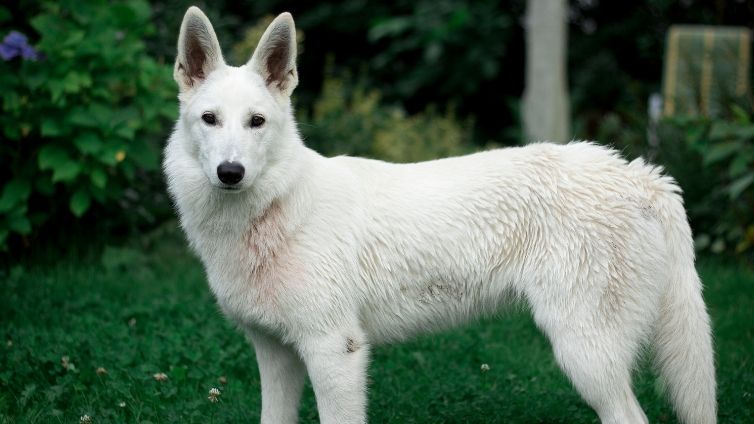
Having problems with your Shepherd barking too much? Don’t worry, other people have had and most likely are still having this problem. Canine barking is completely normal. It’s how dogs communicate after all.
As for White breed of Shepherds, they have long been bred as herding and guard dogs; barking is one of the ways they need to carry out their jobs.
You could pretty much say that these dogs were bred to bark, but when at home, where there are neighbors, excessive barking is a nuisance. But of course, you don’t have to endure all that noise.
So unless you want your eardrums barked off, we’ll look at some ways how you can deal with your pup barking too much. Another reason why Shepherds bark a lot is that they are very much sociable animals with firm senses of companionship.
It’s also in their nature to be affectionate. So when they’re always left alone, they bark out of anxiety. It’s important for you to know the nature of a barking sound so that you will know the reason as to why they bark.
Barking too much can come from certain stimuli, like simply seeing strangers or seeing strangers within its territory. On the former reason, the barking will usually stop when the offending stranger is no longer in sight.
For the latter, your puppy barking sounds the alarm that someone is intruding (they can’t distinguish guests until you establish it to them that some people are trusted visitors and they don’t need to worry).
You need to establish your dominance as the pack leader so that their instincts to defend their territory will be lessened because they know you’re in charge. Start asserting your position early on, while playing with a puppy, roll it on its back.
This puts them in a “submissive position” letting them know that you’re in control. White Shepherds are in need of constant exercise and attention. When they bark for no apparent reason, it may be because they’re anxious, bored, or lonely.
Your dog is trying to get attention, and so it barks to get you to come over and see what’s happening. They hate being by themselves and if you’re always away or it’s always left alone, separation anxiety can develop.
There aren’t a lot of things you can do about their affectionate nature. And besides, why would you want an uncaring dog anyway? So at a young age, crate training is the best way to curb separation anxiety from developing.
Crate training will teach your dog how to loosen up and relax in a calm and safe place while you’re not around so he won’t feel as anxious when you’re away when he grows up.
Always remember that whenever you find your canine barking too much or at an inappropriate time, do not pet it, don’t give him a treat, or don’t speak kindly to it. In short, don’t do anything he might interpret as positive reinforcement.
Although you shouldn’t speak to your dog kindly, don’t shout or yell at him either. He’ll think that you’re joining him in barking.